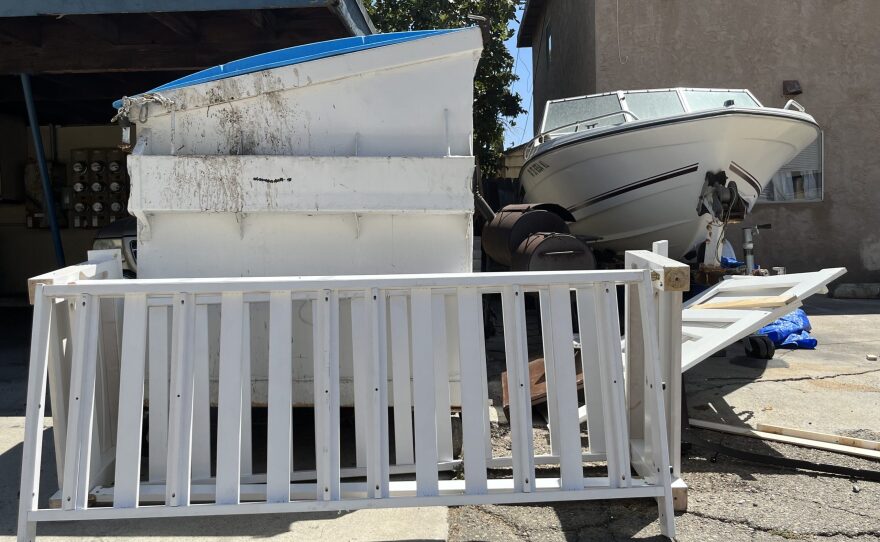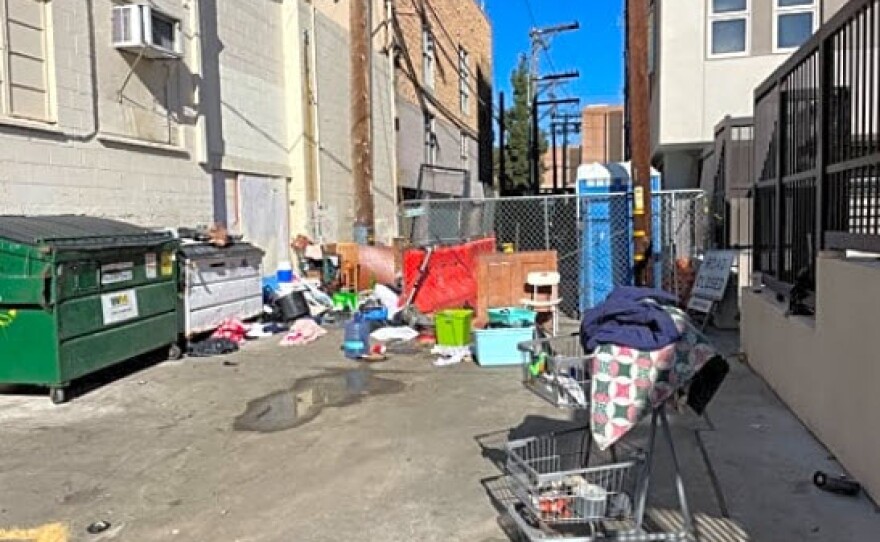The city of San Diego has fielded about 235,000 complaints this year through late August from residents concerned about issues affecting their quality of life.
One issue – parking violations – topped the list of concerns for residents, according to the reports filed through the city’s Get It Done app. San Diego residents are concerned with both 72-hour parking and parking zone violations, which combined made up nearly 40,000 reports so far this year.
Parking complaints, followed closely by homeless encampments and illegal dumping as chief concerns for residents, have captured the city’s attention.
The city of San Diego has set aside $2.9 million in its proposed budget to hire 23 new parking enforcement staff positions.
The city’s widely used Get It Done App offers a centralized place for residents to file complaints about infrastructure and other issues in their neighborhoods. The app, which has about 162,000 downloads, is free.
From January through August 24, the city fielded 235,000 complaints, resolving all but about 38,400 of them, according to data in the city’s app. Residents have complained about a range of issues affecting mobility and quality of life in the city.
Reports include potholes and traffic signals, graffiti and late trash pickup, and even the lack of support for residents with disabilities. For example, one complaint said construction and the expansion of a restaurant into the sidewalk didn’t leave enough room for wheelchairs to pass by and created an obstacle for blind residents.
Response times vary, too, with sidewalk vegetation and encroachment complaints taking almost a year and a half to resolve while the city says it addresses other issues, such as dead animals, potholes and traffic signal issues, in a matter of days.
Here are the top issues bugging San Diegans as reported in the app:
Parking problems
This year’s reports regarding parked cars that exceed the 72-hour parking limit make up 22,329 of the Get It Done service requests filed this year. Any vehicle that is left for 72 consecutive hours without being driven for a tenth of a mile on a public street is in violation and could be fined $53.50.
City officials have responded to the high number of 72-hour parking violation complaints with a plan to spend more on enforcement.
The city’s proposed budget for the 2023-24 fiscal year includes funding for two more police code compliance officers and another staff member aimed at reducing the time needed to address 72-hour parking violations to six days from about 41 days. Twenty other full-time parking enforcement officers will be allotted to resolving parking zone violations.
Clairemont, the neighborhood east of Mission Bay and north of Interstate 8, had the highest number of parking violation reports from January through early August, totaling 1,990 reports in that neighborhood alone.
Some of the hundreds of 72-hour parking violation reports made in Clairemont may be regarding unhoused residents in vehicles.

Mark Schrammel, a member of the Clairemont Town Council board of directors, said on Chateau Drive near Genesee Avenue “there has been a number of people living in their vehicles.”
But despite parking being an issue to neighbors, some residents including Schrammel said increasing parking enforcement was not the right answer. After observing the issues that impact residents of Clairemont the most, Schrammel said the 23 new full-time police positions would be most effective if the city “put them in other areas.”
Encampments
Encampments are a close second to parking issues in driving complaints to the city this year.
About 38,500 reports regarding homeless encampments have been filed since the beginning of the year. Local officials, including San Diego Mayor Todd Gloria, have said finding shelter other than city streets for the unhoused is a top priority.
The city of San Diego has an estimated 4,801 residents who lack permanent housing, according to the San Diego Regional Task Force on Homelessness. Slightly more than half of them are unhoused.
Downtown San Diego remains a hotspot for complaints about encampments. One of the largest concentrations of reports in downtown was along 7th Avenue between Broadway and F Street, where the Salvation Army had offered homeless services until recently.
The organization’s food distribution operation, shelter facility and the downtown thrift store closed and moved in June of last year to a new location in Otay Mesa, leaving the unhoused residents of downtown San Diego with one less shelter. Shelters operated by the city are operating at 84% capacity as of Thursday, a city spokesperson said.
Illegal dumping
Piles of trash and discarded or abandoned belongings drove the third highest number of reports, totaling 35,577 complaints from residents.
The city says illegal dumping incidents take 23 days on average to resolve but could take anywhere from “less than a week or as long as six months.”
Some of those reports are concentrated in specific areas. For example, in January, almost 30 reports described illegal dumping and encampments in an alley behind Tajima Ramen Bar and Lotus Thai Cuisine on Sixth Avenue. Efforts to reach the restaurants’ owners to ask whether the dumping incidents affected them were unsuccessful. The reports closed in January, after which the area saw a sharp decline in reports.

Other hotspots for recurring illegal dumping include popular neighborhoods such as North Park, University Heights, Normal Heights and City Heights. Popular items abandoned on sidewalks, streets, and parking lots include furniture of all varieties, mattresses, and items left behind from cleared encampments, according to the reports.
What San Diegans are complaining about the most?
Here are the top 10 complaints San Diegans submitted to the Get It Done app so far this year:
-
We speak to Brenda Tracy, a rape survivor who SDSU brought in last fall to speak to male athletes amid allegations of a gang rape by members of the football team.








